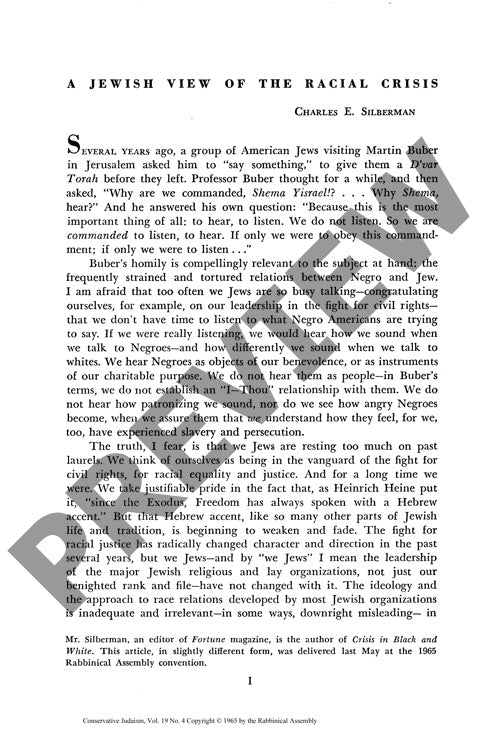A Jewish View of the Racial Crisis
Couldn't load pickup availability
Jewish organizations' failure to evolve alongside the civil rights movement has created a widening gap between rhetoric and meaningful action in addressing racial inequality. While individual Jews remain active participants in civil rights efforts, major Jewish institutions have retreated into comfortable patterns of symbolic Southern support while avoiding direct engagement with Northern urban struggles. Drawing on Martin Buber's emphasis on listening, Silberman reveals how American Jews have grown complacent about their civil rights leadership, relying on past achievements while misunderstanding the fundamental shift in Negro protest movements toward demands for political and economic power rather than mere integration. Through theological reflection, sociological analysis, and examination of organizational responses across New York, Chicago, and Rochester, the research illuminates crucial differences between Jewish and African American historical experiences - particularly how American slavery uniquely severed Black connections to culture and history in ways Jewish persecution never did. As Christian denominations provide substantial support for community organizing in urban ghettos, Jewish organizational involvement remains largely symbolic. To reconnect with Jewish prophetic traditions of justice and meet contemporary moral obligations, Jewish communities must embrace conflict-based organizing methods and move beyond verbal support to direct action in addressing systemic racial inequalities.

More Information
-
Physical Description
-
Publication Information
Published 1965
ISBN
-
Publication Credits
Charles Silberman

